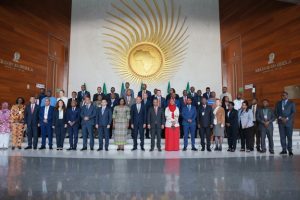
Innovators patent their products to be compensated for their intellectual property, if a third party wants to use that product of patent. A third party should enter into a license agreement with the innovator or creator that requires paying royalties to the patent owner.
By setting royalty rate for patent licensing, both the innovator and the third party benefits fairly. The innovator is compensated in line with the agreement and the licensee’s payments are proportional to how much revenue the patent is generating.
Recently, the Chinese-based international information and communications technology (ICT) infrastructure provider; Huawei announced royalty rates for its handsets, Wi-Fi and Internet of Tings (IoT) patent license programs. The royalty rate aims to promote common and sustainable global industrial development.
During the annual Huawei event on innovation and intellectual property protection held in Shenzhen, Company’s Chief Legal Officer, Song Liuping said that “Huawei is willing to share cutting-edge innovations in the form of patents with the world.” Song added that “these will support the common, sustainable development of industries globally.”
According to a press statement sent to The Ethiopian Herald, Huawei is a major contributor to mainstream ICT standards, such as cellular, WiFi and multimedia codecs. It licenses its standard essential patents (SEPs) on fair, reasonable, and non-discriminatory principles. Hence, the company announced royalty rates for 4G and 5G handsets, Wi-Fi 6 devices, and Internet of Things (IoT) products, where it is top SEP owner in all areas.
Vice President and Head of the Intellectual Property Rights Department at Huawei, Alan Fan, said during the event that a positive cycle where innovators are protected, rewarded and encouraged is key to sustainable innovation. “Huawei takes a balanced approach to patent licensing. We believe reasonable royalty rates will incentivize both the creation and adoption of innovations,” he noted.
According to Fan, so far, Huawei has entered into almost 200 bi-lateral patent licenses. In addition, over 350 companies have obtained licenses to Huawei’s patents through patent pools. Under these licenses, Huawei’s total past royalty payment is about three times its total royalty collection, and its 2022 licensing revenue amount USD 560 million, the statement revealed.
Deputy Director General of the International Telecommunication Union, Tomas Lamanauskas said that frameworks are vital to support innovations globally. “As we continue to tackle global challenges and work towards rescuing the Sustainable Development Goals (SDGs), conducive policies and frameworks are essential to help innovations ecosystems flourish,” he said.
The statement revealed that the company is an active advocate and supporter of major global open secure industry organizations, adding that Huawei official licensing website was launched at the event. The official licensing website aims to offer details about the company’s bilateral licensing programs ranging from mobile handsets to Wi-Fi and cellular IoT.
BY DARGIE KAHSAY
THE ETHIOPIAN HERALD FRIDAY 21 JULY 2023




